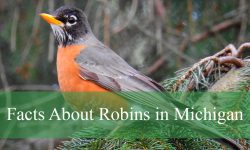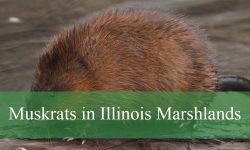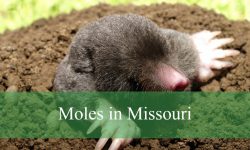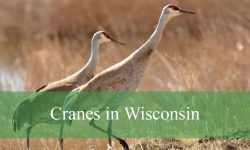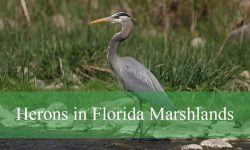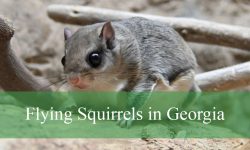High above Tennessee’s rolling hills and winding rivers, a dark silhouette circles effortlessly in the sky. With massive wings outstretched and keen eyes scanning the landscape below, the vulture is both feared and misunderstood. To some, it symbolizes death and decay—but to nature, it represents balance and renewal.
Vultures are among the most important scavengers in Tennessee’s ecosystems, quietly performing one of the planet’s most crucial jobs: cleaning up the remains of the dead. Despite their eerie reputation, these intelligent and highly specialized birds keep the environment healthy and disease-free.
In this in-depth article, we’ll uncover the secrets about vultures in Tennessee that will surprise you—their species differences, feeding habits, remarkable flight abilities, social behavior, and their vital role in maintaining ecological balance. Once you understand the truth about these magnificent scavengers, you may never look at them the same way again.
The Vultures of Tennessee
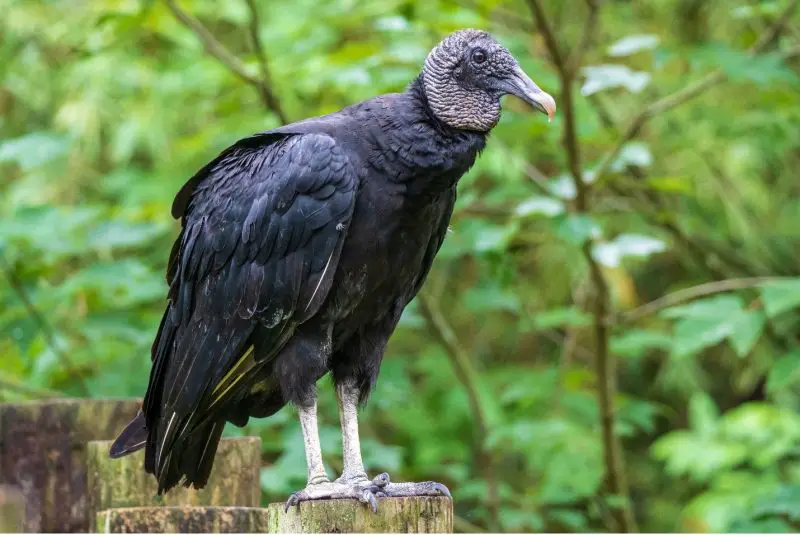
Two Distinct Species
Tennessee is home to two native species of vultures, each with its own fascinating traits and adaptations:
- Turkey Vulture (Cathartes aura) – Also known as the “buzzard,” this species is the more common of the two. It has a red, featherless head and a wingspan of up to 6 feet.
- Black Vulture (Coragyps atratus) – Slightly smaller, with a grayish-black head and shorter tail, but known for its more aggressive feeding behavior and social habits.
While both share similar roles as scavengers, their behaviors, flight styles, and even social structures differ in ways that reveal the complexity of these birds.
Common Habitats in Tennessee
Vultures are incredibly adaptable and can be found throughout the state—from the Great Smoky Mountains to the Cumberland Plateau and Mississippi River Valley.
They prefer open areas near forests, roadsides, or farmlands, where carrion is readily available. You’ll often see them perched on cell towers, barns, and fence posts—watching, waiting, and scanning the horizon with their extraordinary vision.
The Truth About Their Flight
Masters of the Sky
Few birds can match a vulture’s ability to soar. Using thermal air currents, they can glide for hours without flapping their wings, conserving energy while covering vast distances.
A single Turkey Vulture can travel up to 200 miles in a day in search of food, using its enormous wingspan to ride invisible rivers of warm air.
The Signature “V” Formation
When soaring, Turkey Vultures hold their wings in a distinct V shape, known as a “dihedral.” This posture helps them remain stable in gusty winds and gives them their characteristic rocking flight pattern.
Black Vultures, on the other hand, have shorter wings and tend to flap more frequently. They often rely on Turkey Vultures to locate food, then use their dominance to take over once carrion is found.
Feeding Habits: Nature’s Clean-Up Crew
What Do Vultures Eat?
Vultures are strictly scavengers—they feed almost exclusively on carrion, or dead animals. Their diet includes deer, raccoons, livestock remains, and roadkill. They rarely kill live prey, relying instead on their keen senses to locate carcasses.
Turkey Vultures have one of the most powerful senses of smell in the bird world. They can detect the scent of decay from miles away, even beneath a forest canopy. Black Vultures, lacking this sense, often follow their red-headed cousins to feeding sites.
A Stomach Built for Survival
Their stomach acid is so strong that it can dissolve anthrax, rabies, and cholera bacteria—pathogens that would otherwise spread disease. This unique digestive system makes vultures vital to public health, both for wildlife and humans.
Feeding Behavior
Vultures eat communally, often gathering in groups around carcasses. The Turkey Vulture’s gentle nature contrasts sharply with the Black Vulture’s aggressiveness. Black Vultures typically dominate feeding sites, displacing their more passive relatives.
Despite the chaos, their efficient scavenging ensures nothing goes to waste—a perfect natural recycling system.
Breeding and Nesting Secrets
Mating for Life
Vultures are surprisingly loyal. Both Turkey and Black Vultures mate for life, returning each year to the same nesting sites. Courtship rituals include aerial displays where pairs glide and circle together in synchronized motion.
Nesting Habits
Unlike many birds, vultures don’t build elaborate nests. Instead, they lay their eggs in caves, hollow logs, barns, or abandoned buildings. These secluded, dark spaces provide protection for their chicks.
- Clutch Size: 1–3 eggs
- Incubation Period: About 38–41 days
- Parental Care: Both parents share incubation and feeding duties
The chicks are covered in white down and grow rapidly, fledging at around 10–11 weeks old.
Family Bonds
Even after fledging, young vultures stay close to their parents for months. Family groups roost together, share food, and communicate using body language and hissing sounds.
The Role of Vultures in Tennessee’s Ecosystem
Nature’s Sanitation Workers
Vultures perform one of nature’s dirtiest yet most critical jobs—disposing of animal remains. Without them, Tennessee’s ecosystems would be overwhelmed by decaying carcasses, attracting pests and spreading diseases.
By consuming dead matter, vultures prevent outbreaks of anthrax, botulism, and rabies, which can spread among wildlife, livestock, and even humans.
Balancing the Food Chain
Their scavenging indirectly benefits predators such as coyotes and bobcats, which often find food through vulture activity. By cleaning up carrion quickly, vultures also reduce competition among scavengers.
Indicator of Environmental Health
Because vultures feed on carrion, they are sensitive to toxins in the environment, especially lead. A decline in their population can signal ecological problems—making them bioindicators of ecosystem health.
Surprising and Little-Known Facts About Vultures
- They rarely get sick despite eating rotting flesh, thanks to specialized stomach acids.
- Their bald heads prevent bacteria buildup, keeping them clean while feeding.
- Vultures spread their wings in the sun to kill bacteria and regulate body temperature.
- They can projectile vomit as a defense mechanism, repelling predators with the smell.
- Turkey Vultures have the best sense of smell of any bird—comparable to some mammals.
- Black Vultures hunt cooperatively, an unusual trait for scavengers.
- Vultures are silent birds, lacking a syrinx (voice box). They can only hiss, grunt, or wheeze.
- Their scientific name, “Cathartes,” means purifier, perfectly describing their role in nature.
- They can soar for hours without flapping, covering hundreds of miles using thermals.
- Vultures were sacred in ancient cultures, representing renewal and protection.
Where to See Vultures in Tennessee
1. Great Smoky Mountains National Park
Both species are common here, soaring above mountain ridges and valleys. Early morning thermals provide ideal gliding conditions.
2. Reelfoot Lake
Located in northwest Tennessee, this wetland habitat attracts large numbers of vultures, especially during migration seasons.
3. Radnor Lake State Park
Just outside Nashville, this park is one of the best places to observe Turkey Vultures up close as they roost on nearby cliffs and trees.
4. Chickamauga and Chattanooga National Military Park
Historic battlefields and open fields provide prime scavenging grounds.
5. Cumberland Plateau
This region’s cliffs and forests offer perfect roosting and nesting sites for both species year-round.
Cultural Significance and Misunderstood Symbolism
From Fear to Reverence
In many cultures, vultures symbolize death and decay, but in others, they represent purification and rebirth. Ancient Egyptians viewed them as sacred protectors, while Native American tribes saw them as spiritual guides that cleaned the world of impurity.
In modern times, vultures often suffer from negative stereotypes, yet their ecological value far outweighs their grim reputation. In Tennessee, birdwatchers now celebrate their presence as signs of a healthy ecosystem.
The Buzzard Day Tradition
Each spring, the return of Turkey Vultures (locally called “buzzards”) is celebrated in parts of the Midwest and Appalachia. The event marks the unofficial start of spring migration and renewal—proof that even misunderstood creatures can hold deep meaning in local folklore.
Conservation Challenges in Tennessee
Lead Poisoning
One of the biggest threats to vultures comes from lead fragments left in animal carcasses shot by hunters. When vultures feed on these remains, they ingest the metal, which can cause poisoning, weakness, and death.
Habitat Loss and Human Conflict
Development reduces roosting areas, while road traffic poses constant danger. Black Vultures, which sometimes attack weak livestock, are occasionally targeted by farmers, despite being protected under law.
Legal Protection
All vultures in Tennessee are safeguarded under the Migratory Bird Treaty Act, making it illegal to kill or harm them without special permits. Conservation groups work with farmers and communities to promote coexistence through education and non-lethal deterrents.
Coexisting With Vultures
When They Roost Nearby
Large roosts of vultures can be intimidating, especially near homes or towns. However, they are harmless and temporary—often moving on after a few days.
To discourage roosting:
- Use noise deterrents like clapping or air horns.
- Remove potential food sources (carcasses or trash).
- Install motion lights near roosting areas.
Why You Shouldn’t Fear Them
Vultures do not attack pets or livestock, nor do they spread disease. In fact, by removing carrion, they make your environment cleaner and safer.
These birds coexist peacefully with humans, and their mere presence means your area supports a thriving, balanced ecosystem.
Myths and Misconceptions About Vultures
Myth |
Truth |
|---|---|
Vultures attack live animals. |
False. They eat only carrion, not live prey. |
They are dirty and spread disease. |
False. They prevent disease by consuming dead animals. |
They’re bad omens. |
False. They symbolize renewal and balance in many cultures. |
They destroy property. |
False. Roosting causes minimal damage. |
They’re common everywhere. |
False. Populations are stable but still vulnerable to lead and habitat loss. |
Vultures’ Intelligence and Social Structure
Problem-Solving Skills
Vultures are highly intelligent. Black Vultures, in particular, display cooperative behavior, using teamwork to locate food and chase off competitors.
They can also recognize individual humans, learn feeding patterns, and adapt quickly to changes in their environment.
Family and Group Dynamics
Vultures roost communally, sometimes in groups of hundreds of birds. These gatherings allow them to exchange information about food sources and strengthen social bonds.
Interestingly, groups of vultures have special names:
- A “venue” refers to vultures gathered together.
- A “kettle” refers to vultures soaring in the sky.
- A “wake” describes a group feeding on a carcass.
Each name perfectly captures a different aspect of their mysterious lives.
Environmental Benefits of Vultures
Disease Prevention
By consuming carrion quickly, vultures stop bacteria and parasites from spreading into soil and water sources. This service is particularly valuable in Tennessee’s agricultural regions.
Waste Reduction
Vultures are nature’s ultimate recyclers—turning what would be waste into part of the nutrient cycle. Without them, carcasses could linger for weeks, attracting pests and pathogens.
Supporting Biodiversity
Their scavenging keeps ecosystems balanced, benefiting other species by maintaining cleaner, healthier habitats.
FAQs About Vultures in Tennessee
Are vultures protected by law?
Yes. All vulture species are protected under the Migratory Bird Treaty Act.
What’s the difference between Turkey and Black Vultures?
Turkey Vultures have red heads and strong smell; Black Vultures have black heads and rely on sight and teamwork.
Do vultures migrate from Tennessee?
Some populations migrate south in winter, but many remain year-round due to Tennessee’s mild climate.
Why do vultures spread their wings in the sun?
It helps regulate body temperature and kill bacteria after feeding.
Can vultures harm pets or livestock?
No, except rare cases involving weak or newborn animals. Generally, they only scavenge.
Conclusion
The vultures of Tennessee are among the most misunderstood creatures in the animal kingdom. Far from being ominous or filthy, they are essential environmental guardians that cleanse the land and keep ecosystems thriving.
Their soaring silhouettes remind us of nature’s delicate balance—where even the creatures of decay play a vital part in renewal. By appreciating and protecting these remarkable birds, Tennesseans help ensure that their skies remain filled with the graceful flight of these unsung heroes.
The secrets about vultures in Tennessee reveal one undeniable truth: sometimes, the most overlooked animals are the most important to keeping the circle of life complete.

